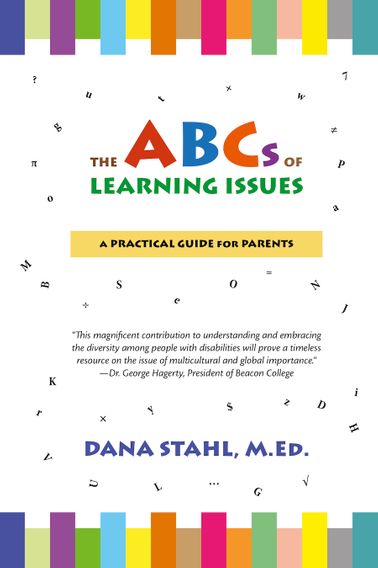Academic Anxiety can alter our ability to perform everyday tasks with ease or to be able to relax in our surroundings. For children with academic anxiety, their fear or nervousness interferes with everyday life. Their anxiety levels are linked to internal pressure that they place on themselves, as well as how they perceive their family members’ and teachers’ expectations.
For these children, academic anxiety undermines performance and the ability to transition from one activity to another which interrupts the learning process.
The following learning issues, Academic Anxiety with Regard to Performance is reprinted from my book, The ABCs of Learning Issues.
Clinical definition
Anxiety may be a normal part of life, and it can also be maladaptive if excessive feelings of fear, worry, or nervousness interfere with everyday life. Anxiety levels are linked to internal pressure that the students may place on themselves, as well as how they perceive their family members’ and teachers’ expectations, as well.
Educators’ definition
Performance anxiety interferes with the learning process as students tend to shut down and cannot fully engage with the material presented in class due to fear or worry of underachieving.
What do these definitions mean?
Students have an inner fear that they aren’t going to perform to the best of their ability so they freeze. Due to the anxiety, they underperform. It is as if they get stage fright when presented with assigned tasks. Academic anxiety with regard to performance may manifest as a gap between children’s academic abilities and their academic performance.
- Children may demonstrate anxiety when initiating
- They may need ongoing guidance and positive reinforcement while preparing and completing
- They are fearful that they will not be able to complete or comprehend assigned
- They may be reluctant to attend school
Which professionals can treat this learning issue?
- Child psychiatrists
- School psychologists
- Learning specialists
- Classroom teachers
- Academic tutors
Which teaching strategies can be effective in school?
- Create learning environments that encourage students to independently navigate and negotiate their academic work
- Lower the overall level of uncertainty in the classroom by clearly stating the short- and long-term goals of
- Allow students to monitor their own short- and long-term academic growth
- Offer direct instruction to students before beginning independent assignments
- Provide detailed outlines to study from and to refer to when completing assignments and preparing for
Which strategies can help at home?
- Teach your child to “smash the task,” or break it down into manageable components. Students develop a sense of ownership in accomplishing small segments of assignments, which lowers their anxiety and allows for successful completion.
- Provide ongoing support when your child is preparing and completing tasks
- Create study guides and outlines that help your child prepare for quizzes and tests
- Encourage your child to If you or your child does not have any prior experience with meditation, there are many websites and free podcasts that provide guided meditation for relaxation and focus. You can try it together!
- Remind your children to breathe deeply when they feel stressed
- Spend time with your children and encourage them to discuss their concerns
Originally published at educationalalternativesllc.com


